Well, sleepers, ’tis officially the season for holiday travel. Unfortunately, these end-of-the-year trips aren’t all mistletoe and cheer, and some of you might find yourselves stuck in an airport on your way to Grandmother’s house. And if you do, you might as well get some sleep. So, in the spirit of a stress-free holiday season, here are 7 tips to help you catch some Zzz’s while you wait for your flight.
1.) Aim For Hospitable Airports
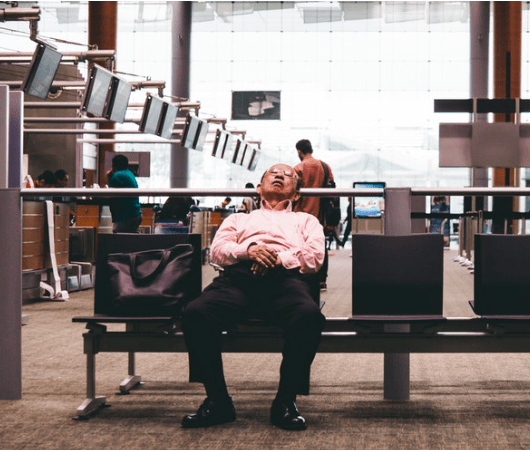
It’s not a bad idea to do a little research into the airports you’ll be visiting, just in case you’re stuck there for longer than you planned. You might not know this, but a good handful of U.S. airports offer cots to stranded passengers, as well as “Minute Suites.” The Minute Suites cost a small fee, but upon request, airport officials will provide you with fresh pillows, blankets, and even a small TV that’s got Netflix queued up and ready to go.
2.) Sleep In Shifts
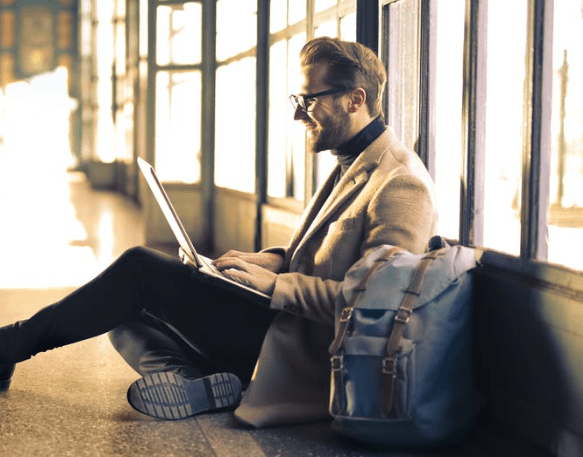
If you and your travel buddies find yourselves aching for a nap, but don’t quite trust the hundreds of folks buzzing around you, try sleeping in shifts. It can be difficult to doze off with the threat of a phone or a laptop being swiped mid-slumber, so have your friend keep watch while you rest your eyes (and be sure to return the favor).
3.) Build Your Own Lullaby
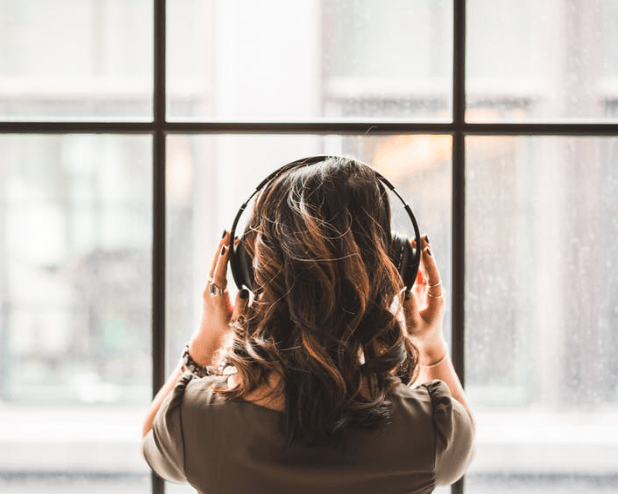
Curating a relaxing playlist on your smartphone might help calm your nerves enough to doze off. In fact, studies have shown that listening to music can greatly reduce anxiety. (1) But research also shows that some tunes are better tailored to nap-time than others. Classical music, for example, has been scientifically shown to improve sleep quality and even treat insomnia. If you’re not a classical music lover, don’t worry. Any song with a rhythm of about 60 beats per minute has been marked by researchers as ideal for sleep. (2) Popular examples would be “Stay With Me” by Sam Smith or “The Boxer” by Simon & Garfunkel.
4.) Meditate
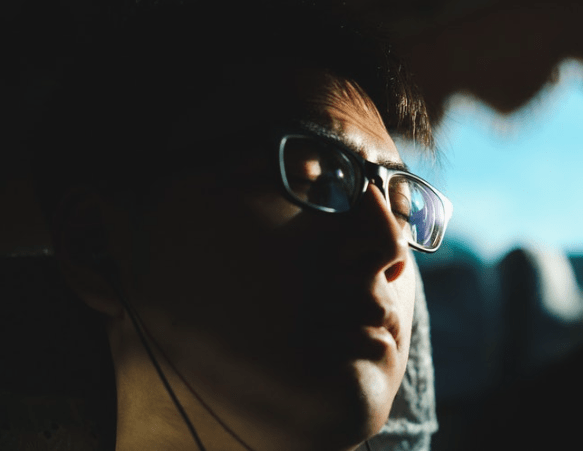
If listening to music isn’t your cup of tea, try soothing your frazzled nerves with some mindful meditation. Sleep research suggests that meditating before bed reduces anxiety, wards off insomnia, and improves your mood during the daytime. (3) So, who knows? Maybe you’ll add this healthy habit to your personal nighttime routine. Oh, and if you’ve never meditated before and you’re not sure how, no worries — there’s an app for that.
5.) Get Creative With Your Carry-On
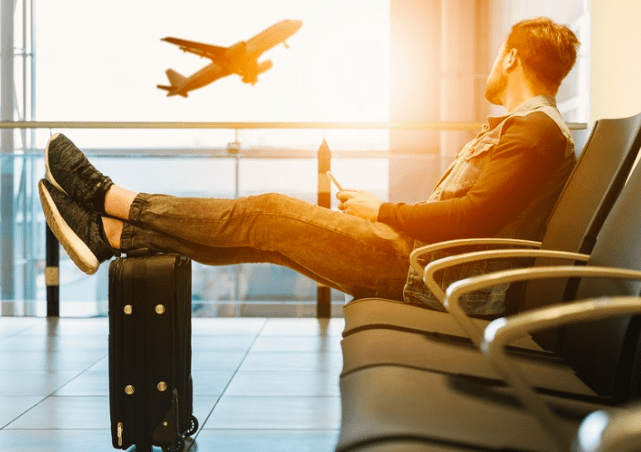
If you must be posted up in an airport for hours, you might as well carve out a personal sleep space for yourself. So, reach into your carry-on and get creative! You can use a scarf to wrap around your eyes for a sleep mask, roll up a towel to use as a pillow, and even use your suitcase as an ottoman. If you can, try throwing on an extra pair of socks too. Research shows that the warmer your feet are, the more your blood vessels open, telling your brain that it’s time for sleep.
6.) Snack Preparedness
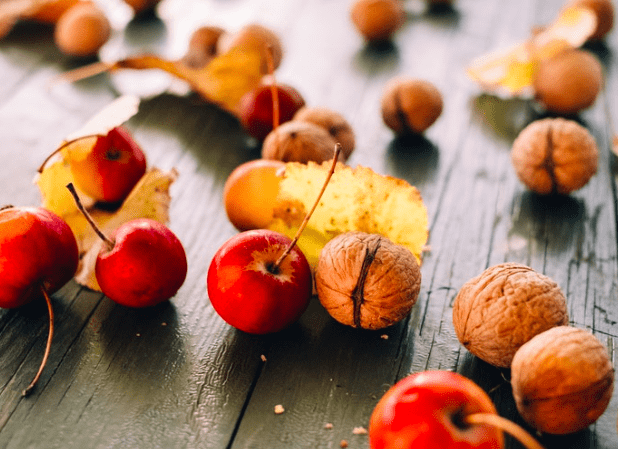
There are a handful of foods that are scientifically proven to induce drowsiness, and many of them are inexpensive and can be found right at the airport. Walnuts, almonds, bananas, cherries and oranges all contain melatonin, a hormone that makes you feel sleepy. If you’re feeling a little too anxious to eat, poke around a couple of the airport’s restaurants in search of chamomile tea, which is also known for its calming qualities. (5)
7.) Just Breathe
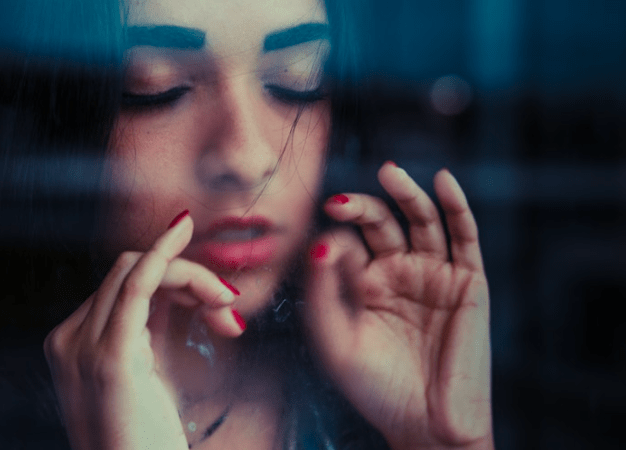
It might sound like simple advice, but there are specific breathing techniques that have been medically proven to not only calm your nerves, but induce sleep as well. (6) Diaphragmatic breathing (also known as abdominal breathing) is easy to learn, and you can do it sitting or lying down. Just breathe in slowly through your nose, allowing your lower belly to rise first, then your chest, and focus on filling your lungs. Once you feel your abdomen expand fully, breathe out slowly through your mouth. Repeating this for at least ten minutes will increase oxygen exchange, lower your heart rate, and lower your blood pressure — all of which set the mood for some quality snoozing.
*Bonus* Make Friends!
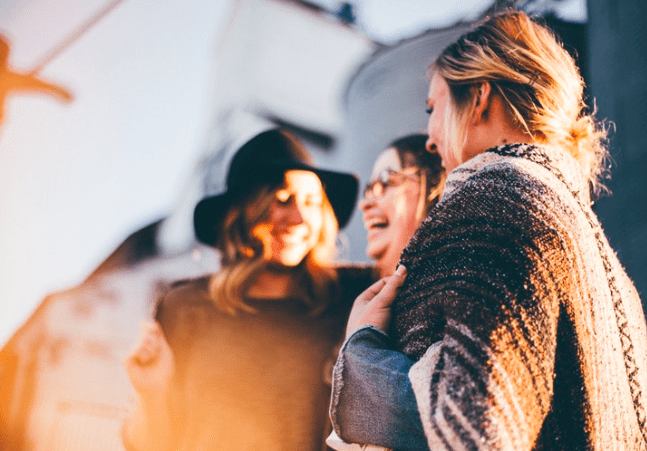
At the end of the day, you’re all traveling to be with people you love. So if you’re stuck in a terminal with dozens of other delayed passengers, why not take a break from social media scrolling and make some new friends? Studies show that social interaction benefits both physical and psychological health; and if you feel better, you sleep better. (7) Besides, chances are they’re just as anxious as you are to get home and might have an interesting story to tell.
References
- Thoma, Myriam V., et al. “The Effect of Music on the Human Stress Response.” PLOS ONE, Public Library of Science, 2013, journals.plos.org/plosone/article?id=10.1371%2Fjournal.pone.0070156.
- Harmat, L, et al. “Music Improves Sleep Quality in Students.” Current Neurology and Neuroscience Reports., U.S. National Library of Medicine, May 2008, www.ncbi.nlm.nih.gov/pubmed/18426457.
- Black, David S. “Mindfulness Meditation in Sleep-Disturbed Adults.” JAMA, American Medical Association, 1 Apr. 2015, jamanetwork.com/journals/jamainternalmedicine/fullarticle/2110998.
- Ware, Arista. “Wearing Socks to Bed | Sleep.org by the National Sleep Foundation.” Sleep.Org, Sleep.Org, 10 Nov. 2014, www.sleep.org/articles/wearing-socks-to-bed/.
- “Food and Drink That Promote a Good Night’s Sleep.” National Sleep Foundation, 2018, www.sleepfoundation.org/sleep-topics/food-and-drink-promote-good-nights-sleep.
- Harvard Health Publishing. “Relaxation Techniques: Breath Control Helps Quell Errant Stress Response.” Harvard Health Blog, 2018, www.health.harvard.edu/mind-and-mood/relaxation-techniques-breath-control-helps-quell-errant-stress-response.
- Umberson, Debra, and Jennifer Karas Montez. “Social Relationships and Health: A Flashpoint for Health Policy.” US National Library of Medicine , 2011, www.ncbi.nlm.nih.gov/pmc/articles/PMC3150158/.